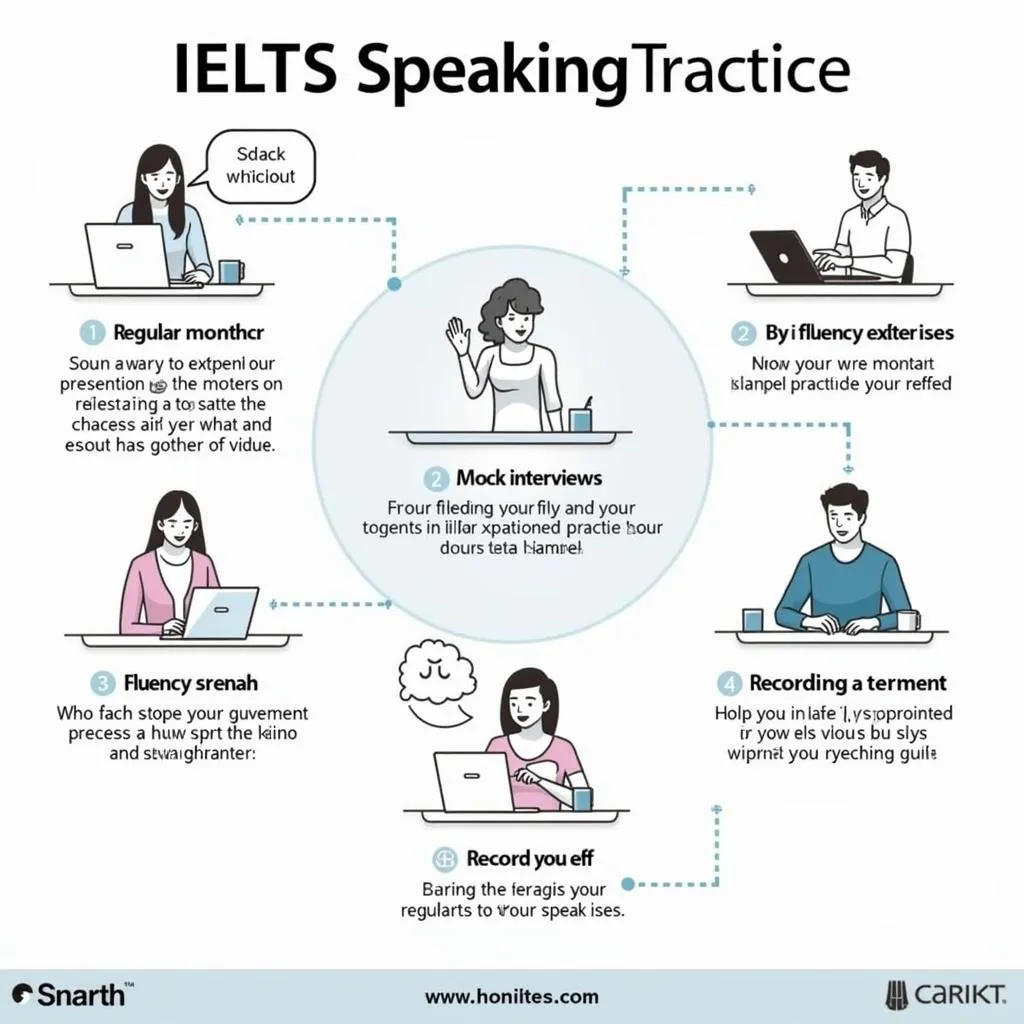Describing a time when you had to rely on someone for help is a common topic in IELTS Speaking tests. This theme explores your ability to narrate personal experiences, express gratitude, and discuss interpersonal relationships. Let’s dive into how you can excel in this topic across all parts of the IELTS Speaking exam.
Nội dung bài viết
Part 1: Introduction and Interview
In this section, the examiner may ask you general questions about seeking or receiving help. Here’s a sample question with a suggested answer:
Question: “Do you often ask for help when you need it?”
Sample answer (Band 7-8):
“Well, I’d say I’m fairly independent, but I don’t hesitate to seek assistance when necessary. I believe that asking for help is a sign of strength, not weakness. It’s important to recognize our limitations and leverage the expertise of others when needed. That being said, I always try to solve problems on my own first before turning to others for support.”
 IELTS Speaking Part 1: Answering questions about seeking help
IELTS Speaking Part 1: Answering questions about seeking help
Part 2: Long Turn
Here’s a sample cue card related to the topic:
Describe a time when you had to rely on someone for help
You should say:
- Who you asked for help
- What the situation was
- How this person helped you
- And explain how you felt about receiving this help
Sample answer (Band 8-9):
“I’d like to talk about a time when I had to rely on my neighbor, Mrs. Johnson, for help during a particularly challenging situation. It was about two years ago when I was preparing for a crucial job interview, and my car unexpectedly broke down the night before.
The situation was quite nerve-wracking as I had spent weeks preparing for this interview, and the prospect of missing it due to transportation issues was incredibly stressful. I knew I needed a reliable solution quickly, so I decided to ask Mrs. Johnson for assistance.
Mrs. Johnson, being the kind-hearted person she is, immediately offered to drive me to the interview location, which was about an hour away from our neighborhood. She not only agreed to take me there but also waited for me to finish the interview so she could drive me back home. Her support went beyond just transportation; she also gave me a pep talk on the way, which helped calm my nerves and boost my confidence.
Receiving this help from Mrs. Johnson made me feel incredibly grateful and touched. It was a poignant reminder of the importance of community and how a simple act of kindness can make a significant difference in someone’s life. I felt a mix of relief, appreciation, and a renewed sense of faith in human kindness.
This experience also taught me the value of building good relationships with those around us and the importance of being willing to both give and receive help when needed. It reinforced my belief that we’re all interconnected and that supporting each other is crucial for creating a harmonious society.”
 Neighbor helping with interview transportation
Neighbor helping with interview transportation
Possible follow-up questions:
- How did you express your gratitude to Mrs. Johnson after she helped you?
- Did this experience change your relationship with your neighbor in any way?
Sample answer for follow-up question 1 (Band 8-9):
“To express my heartfelt gratitude, I went above and beyond a simple thank you. I wrote Mrs. Johnson a sincere thank-you note detailing how her kindness had impacted me and helped me secure the job. Additionally, I surprised her with a beautiful potted plant for her garden, knowing her passion for horticulture. I also offered to help her with any future tasks or errands she might need assistance with, ensuring that my appreciation was both expressed and actionable.”
Part 3: Two-way Discussion
Question: “Do you think people in modern society are less willing to help others compared to in the past?”
Sample answer (Band 8-9):
“That’s an intriguing question, and I believe the answer is quite nuanced. On one hand, our fast-paced, individualistic society might give the impression that people are less inclined to help others. The demands of modern life often leave little time for community engagement or altruistic acts.
However, I’d argue that the willingness to help hasn’t diminished, but rather transformed. We’ve seen unprecedented levels of global cooperation in recent years, especially during crises like the COVID-19 pandemic. Social media and technology have also facilitated new forms of assistance, allowing people to offer help on a larger scale, whether through crowdfunding, online volunteering, or digital support groups.
Moreover, there’s a growing awareness of social responsibility, particularly among younger generations. Many are actively seeking ways to make a positive impact, be it through ethical consumerism, volunteering, or social entrepreneurship.
So, while the methods and manifestations of help may have evolved, I believe the fundamental human instinct to support others remains strong. The key lies in fostering environments and systems that encourage and facilitate helping behaviors in our modern context.”
 Modern society and helping others
Modern society and helping others
Key Vocabulary and Phrases for High Scores
-
To leverage (verb) /ˈlevərɪdʒ/ – to use something to maximum advantage
Example: “We should leverage our network to find new opportunities.” -
Poignant (adjective) /ˈpɔɪnjənt/ – evoking a keen sense of sadness or regret
Example: “The story was a poignant reminder of the fragility of life.” -
To go above and beyond (phrase) – to do more than is required
Example: “The customer service representative went above and beyond to solve my problem.” -
Nuanced (adjective) /ˈnjuːɑːnst/ – characterized by subtle shades of meaning
Example: “The issue requires a nuanced approach, not a one-size-fits-all solution.” -
Unprecedented (adjective) /ʌnˈpresɪdentɪd/ – never done or known before
Example: “The pandemic led to unprecedented levels of global cooperation in vaccine development.”
Examiner’s Advice
To achieve a high score in the IELTS Speaking test when discussing topics like receiving help:
- Use a variety of vocabulary and complex sentence structures to demonstrate your language proficiency.
- Provide specific examples and personal anecdotes to support your points and make your answers more engaging.
- Describe a time when you helped someone with advice to show your ability to discuss related topics from different perspectives.
- Practice expressing your thoughts on abstract concepts related to helping others, as these are likely to come up in Part 3.
- Work on your fluency by regularly discussing various aspects of receiving and giving help in English.
- Develop your ideas fully, providing reasons and examples for your opinions.
- Describe a time when you stood up for someone to showcase your ability to discuss different forms of assistance and support.
Remember, the key to success in IELTS Speaking is not just about answering the question, but how you articulate your thoughts and experiences. Practice regularly, expand your vocabulary, and don’t be afraid to express your opinions confidently.
 IELTS Speaking practice tips for high scores
IELTS Speaking practice tips for high scores
By following these guidelines and practicing consistently, you’ll be well-prepared to tackle any question about receiving help or related topics in your IELTS Speaking test. Good luck with your preparation!


